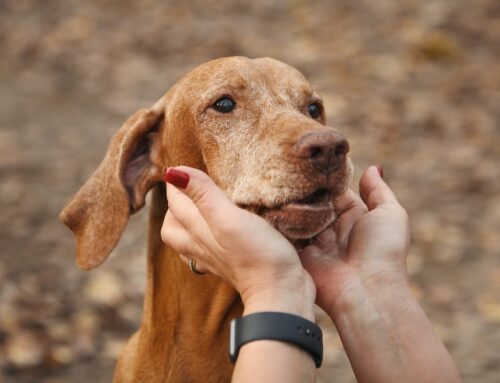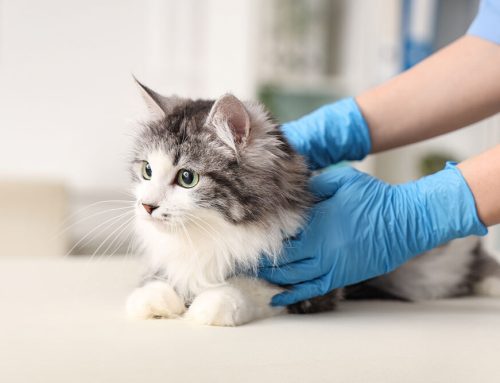You may have heard of pet microchips but were uninterested, thinking they are expensive tracking devices. Or, perhaps you assume your well-behaved pet would never leave your yard. Unfortunately, many well-meaning pet owners have these misconceptions, with disastrous results. Let’s look at Apricot the Labradoodle’s recent adventure—ahem, not what her owner would call it—to see the importance of a microchip should your pet get loose.
Apricot’s (mis)adventure
It was a sunny Saturday morning, and Apricot was up with the birds—she was tired of being cooped up all winter, and wanted to enjoy the spring morning. She barked until her owner groaned, groggily led her down stairs, and let her out in the fenced backyard. Apricot walked the yard’s perimeter, happily investigating scents left by rabbits and squirrels. Then, she suddenly stopped. Last night’s wind had blown open the gate, already partially damaged by the tough winter. Apricot was typically well-behaved, but an open gate was too tempting, and she hesitated for only a second before she squeezed through the metal gate. Unfortunately, as her neck rubbed on the gate, her breakaway collar with her identification tags released and dropped to the ground.
Feeling rather smart all by herself, unconstrained by a leash, Apricot strolled along the sidewalk, holding her head high. She took a few side trips into yards to sniff something interesting, and once to chase a cat, but mostly stuck to the sidewalk. After a leisurely walk, she found herself at the park. This was her favorite place! She became excited, running from one attraction to the next. She watched kids playing on the swings, joined a passing jogger for a few minutes, and gobbled down a half-eaten sandwich by the trash can. As she lay down under a shade tree, she heard a little girl say, “Look daddy—that dog is by herself!”
Meanwhile, back at home …
After letting Apricot out, her owner went through her typical morning routine—bathroom, coffee, and digital news update on the couch. After 10 minutes, she went to the door to call Apricot. When Apricot did not come running, her owner stepped outside and scanned the yard. Her heart sank when she saw the empty yard and open gate. She threw on shoes and a jacket, and set off to search for her wayward dog. After walking and calling Apricot’s name for nearly an hour, she was close to tears. She decided to go home and drive around the neighborhood.
As she reached her house, her phone rang. It was the microchip company calling to let her know that Apricot had been taken to a nearby shelter, and was safely awaiting a ride home.
Benefits of microchipping your pet

Apricot was successfully reunited with her owner, thanks to the microchip her veterinarian had implanted when she was a puppy. We wholeheartedly recommend microchipping your pet, for several reasons:
- A microchip provides life-long, permanent identification — A microchip is a tiny electronic chip encased in a glass cylinder that is implanted under the skin between your pet’s shoulder blades. A handheld scanner that is passed over the microchip will emit radio waves that activate the chip, which transmits a unique identification number to the scanner. Since the microchip is located inside your pet’s body, it cannot fall off or become lost like a collar or identification tag. Microchips have no batteries or moving parts that need replacing, and will last your pet’s lifetime.
- A microchip can be placed during a routine office visit — A microchip is the size of a rice grain, and comes preloaded in a syringe. Implanting the microchip requires a single injection, similar to a vaccine. Our Homestead Animal Hospital team can place your pet’s microchip during a routine office visit. Microchips are not GPS trackers, and do not require advanced technology, so they are an economical form of permanent identification.
- A microchip increases the chance of a happy reunion with your lost pet — A study of more than 7,000 stray animals showed that only 21.9% of dogs without microchips, compared with 52.2% of microchipped dogs, were returned to their owners. Only 1.8% of cats without microchips, compared with 38.5% of microchipped cats, returned home. When microchipped pets were not returned home, it was typically because their owner information in the microchip database was missing or incorrect, so ensure you register your pet’s microchip and keep your contact information updated.
Microchipping your pet is a simple, cost-effective way to increase the likelihood of a happy reunion should they become lost. Contact Homestead Animal Hospital to schedule your pet’s microchip appointment, or ask us about microchipping during your pet’s next wellness visit.
















Leave A Comment